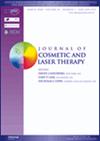脉冲染料激光治疗葡萄酒色斑的时间间隔:30年的经验。
IF 1.2
4区 医学
Q3 DERMATOLOGY
引用次数: 0
摘要
葡萄酒色斑(PWS)通常难以用激光治疗。本研究的目的是评估治疗间隔时间的作用。从1990年开始,216名患者接受了脉冲染料激光治疗。激光治疗的时间间隔最短为4周,最长为48周。最后一次激光治疗后8周评估临床结果。治疗间隔时间为8周时效果较好,间隔时间为4、6和10周时效果也较高。相反,对于更大的间隔,有效性显着降低。本文章由计算机程序翻译,如有差异,请以英文原文为准。
Time interval between pulse dye laser treatments of port-wine stains: 30 years of experience.
Port-wine stains (PWS) are frequently refractory to laser treatments. The aim of this study is to evaluate the role of treatment interval time. From 1990, 216 patients underwent Pulsed Dye Laser sessions. The laser sessions were scheduled at a minimum interval of 4 weeks to a maximum of 48 weeks. Clinical outcomes were assessed 8 weeks after the last laser session. Better results were obtained with 8 weeks interval time between therapy session, and high efficacies were also found for intervals of 4, 6 and 10 weeks. For greater interval instead, the effectiveness is significantly lower.
求助全文
通过发布文献求助,成功后即可免费获取论文全文。
去求助
来源期刊

Journal of Cosmetic and Laser Therapy
DERMATOLOGY-SURGERY
CiteScore
2.50
自引率
0.00%
发文量
36
审稿时长
>12 weeks
期刊介绍:
A unique journal that focuses on the application of cosmetic laser and light therapies on the skin. The Journal of Cosmetic & Laser Therapy provides a forum for stimulating and up-to-date studies demonstrating the wide range of therapeutic options for clinicians and surgeons involved in cosmetic and dermatological treatment.
The journal is aimed at dermatologists, cosmetic surgeons, plastic and facial plastic surgeons, oculoplastic surgeons and all those interested in the rapidly expanding field of cosmetic and laser therapy.
Features include:
-Cosmetic surgery, including facial rejuvenation, hair removal and skin resurfacing
-Use of lasers and other light sources for cosmetic and dermatological treatment
-Applications of peeling agents, fillers, injectables, implants and other cosmetic modalities
-Topical treatments
-Practical tips and safety issues
 求助内容:
求助内容: 应助结果提醒方式:
应助结果提醒方式:


